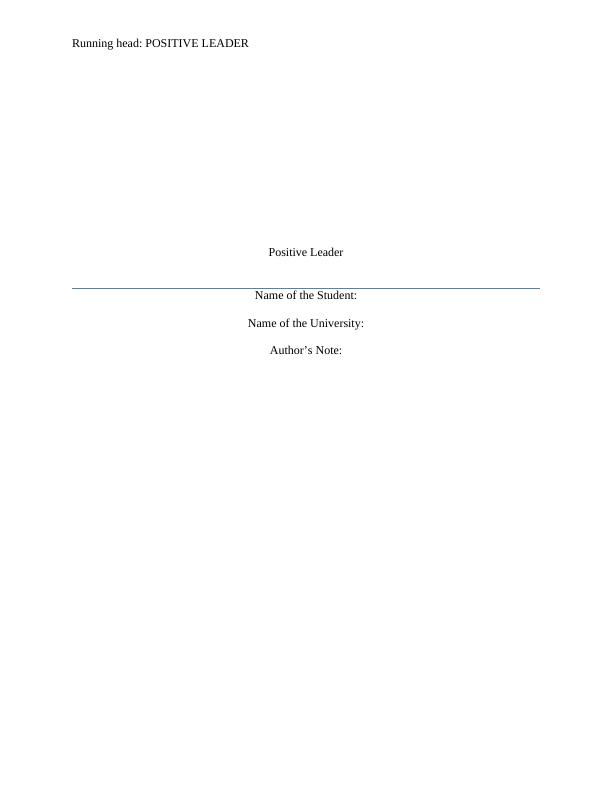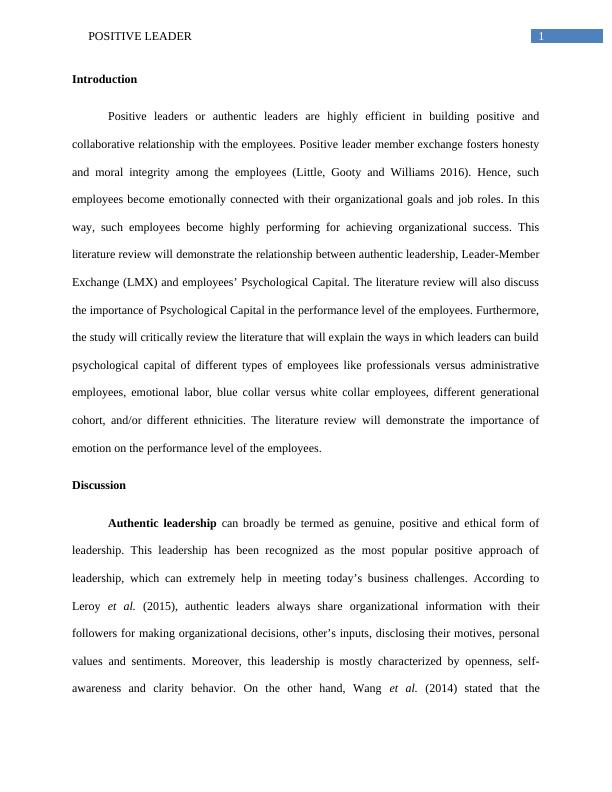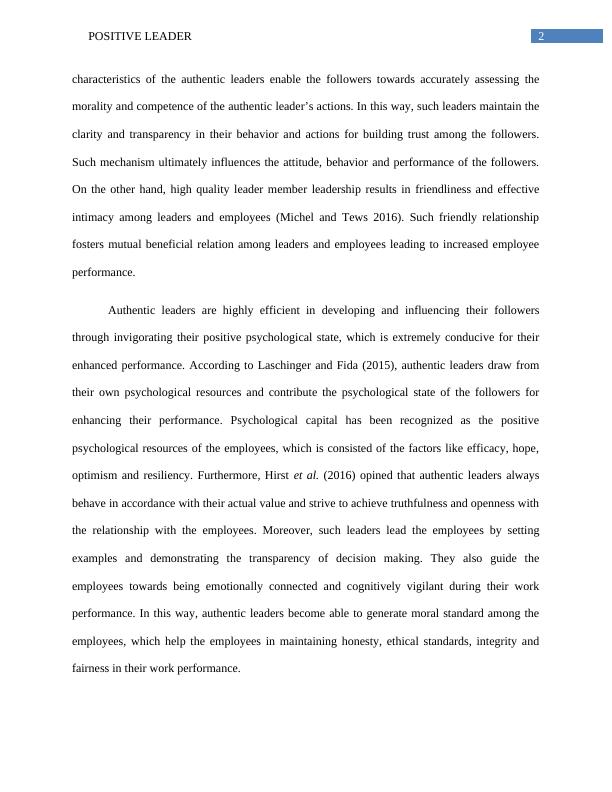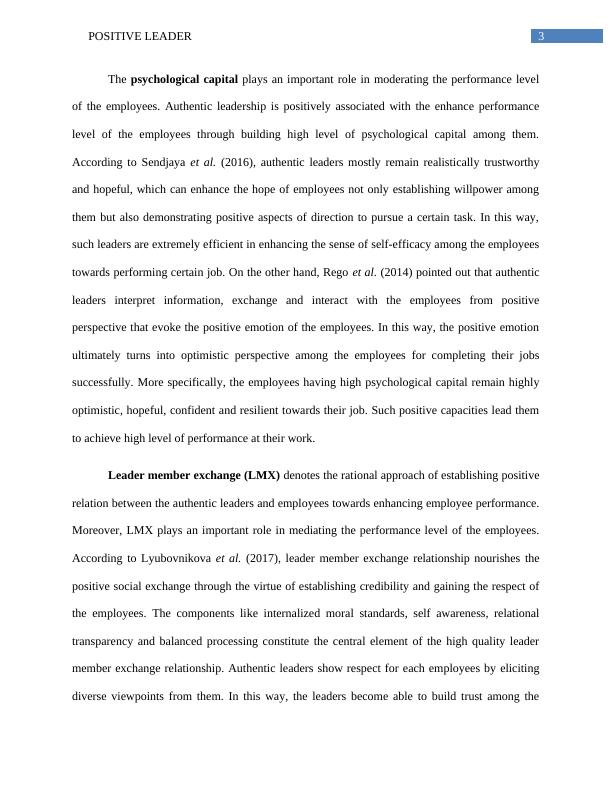Authentic Leadership, Leader-Member Exchange, and Psychological Capital: A Literature Review
13 Pages3803 Words361 Views
Added on 2023-06-12
About This Document
This literature review explores the relationship between authentic leadership, Leader-Member Exchange (LMX), and employees’ Psychological Capital. It also discusses the importance of Psychological Capital in the performance level of the employees and ways in which leaders can build psychological capital of different types of employees.
Authentic Leadership, Leader-Member Exchange, and Psychological Capital: A Literature Review
Added on 2023-06-12
ShareRelated Documents
End of preview
Want to access all the pages? Upload your documents or become a member.
Positive Leadership Assignment PDF
|14
|3630
|135
Impact of Leadership on Business: Authentic Leadership, Leader-Member Exchange, and Psychological Capital
|8
|2402
|497
The Relationship between Authentic Leadership, LMX and Employees’ Psychological Capital
|10
|3499
|151
Analysis of Positive Leader and its Impact on Psychological Capital
|13
|3629
|336
The Positive Leader Report 2022
|10
|2688
|24
Relationship between Authentic Leadership, Leader-Member Exchange and Psychological Capital
|10
|2780
|465




